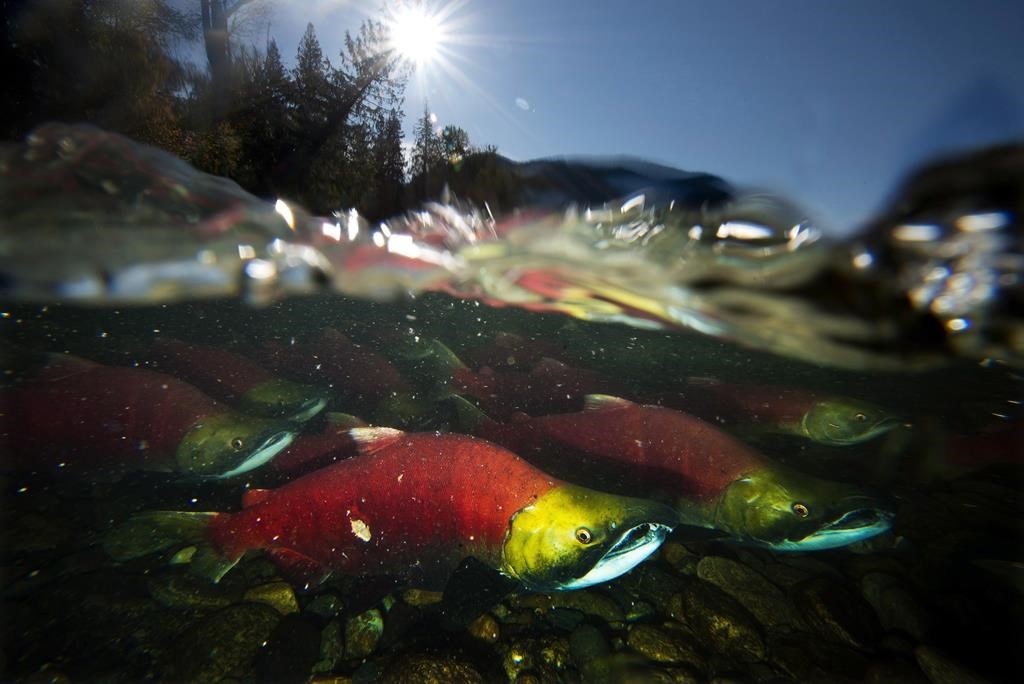The Tŝilhqot’in Nation says it’s “outraged” by reports that commercial fishers in Alaska have harvested hundreds of thousands of salmon bound for British Columbia.

According to a report published this week, commercial fishers in six fishing districts off southeastern Alaska hauled some 50,000 Chinook, 1.2 million chum, 540,000 coho, 34 million pink, and 800,000 sockeye salmon out of the water in 2021.
Many of B.C.’s largest salmon runs pass through Alaskan waters on their way home to spawn in B.C., according to the Watershed Watch Salmon Society and SkeenaWild Conservation Trust, which commissioned the report.
The report authors used catch data obtained through from Fisheries and Oceans Canada staff, the Alaska Department of Fisheries and Game, other agencies and online resources.
“That’s a big threat to us and a big threat to our lifestyle around sockeye as a main diet,” said Tŝilhqot’in Nits’ilʔin (Chief) Joe Alphonse in a Friday interview.
“Here in the Interior we only have one option and that’s sockeye, so we’re heavily dependent on sockeye.”
The Tŝilhqot’in National Government has been heavily involved in the management of the Chilko Lake sockeye run — one of the only relatively healthy runs left in the Fraser River, said Alphonse.
The First Nation suspended its fishery for two years after the Big Bar Landslide hurt the salmon run in 2019, he added, which is why the numbers reported out of Alaska are so alarming.
“To go two years without that food source was a huge sacrifice,” he explained. “The spawning grounds of the Chilko Lake run all lie within Tŝilhqot’in title lands … it’s very unique and distinct.”
In June last year, record-low B.C. salmon numbers prompted the federal fisheries minister at the time, Bernadette Jordan, to shut down 60 per cent of the province’s commercial salmon fishery.
Ottawa also pledged close to $650 million over five years for the Pacific Salmon Strategy Initiative, which aims to stabilize and restore a sustainable Pacific salmon stock.

Get daily National news
In a Friday news release, Alphonse said Tŝilhqot’in Nation is considering legal action over Canada’s “unwillingness” to protect their interests at the level of the Pacific Salmon Commission.
In a written statement, Fisheries and Oceans Canada touted the benefits of the Pacific Salmon Strategy Initiative — “the largest investment Canada has made in salmon,” aimed at regenerating the stock.
It also said the Pacific Salmon Treaty ensures both the U.S. and Canada equally benefit from the fishery and helps prevent overfishing.
“Canada and the United States meet regularly and report to each other on fishery harvests, research, management and conservation objectives to facilitate the implementation of the Pacific Salmon Treaty,” wrote Claire Teichman, press secretary for Fisheries Minister Joyce Murray.
“DFO officials are aware of the report and are reviewing it.”

In its release, the Tŝilhqot’in Nation Government called on Ottawa to establish an independent review of the Pacific Salmon Treaty, an agreement between the U.S. and Canada to co-operate on the management of Pacific salmon stocks. Tŝilhqot’in representatives must be allowed to participate in that review, it added.
“Canada has stood silent while watching the U.S. permitting overfishing our already mismanaged stocks,” said the release. “This is not an isolated event: over-harvesting in Alaskan waters is threatening the future existence of these stocks.”
The United Fishermen of Alaska did not respond to a request for comment on Friday. The Alaska Department of Fish and Game, however, has said the Canadian non-profits’ report on its salmon fishery is “unfair and biased.”
“I was disappointed by what I consider to be a targeted attack on Southeast Alaska salmon fisheries by these special interest groups,” said Department Commissioner Doug Vincent-Lang in a Jan. 13 news release.
“Moreover, I find the timing of the release of this report to be suspect as it coincides with on-going Pacific Salmon Treaty meetings. The summary comments were subjective and one-sided and appear to be designed to derail Pacific Salmon Treaty talks.”
The commissioner said he takes the treaty obligations seriously and all southeast Alaska fisheries are managed in compliance with the agreement.








Comments